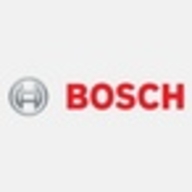

SUSE Linux Enterprise and Bosch IoT Device Management are complementary offerings in the technology domain. SUSE stands out in traditional IT infrastructure, while Bosch seems better suited for IoT-specific applications due to its specialized focus.
Features: SUSE Linux Enterprise is recognized for its security, scalability, and support for various hardware architectures, positioning it as a strong contender in enterprise IT. Bosch IoT Device Management is designed for efficient IoT device lifecycle management, secure data handling, and seamless connectivity, catering to IoT-focused environments.
Ease of Deployment and Customer Service: SUSE Linux Enterprise provides comprehensive support with extensive documentation and resources, ideal for traditional IT setups. Bosch IoT Device Management offers a flexible architecture, scalable for IoT deployments, and is backed by specialist support tailored to complex IoT scenarios.
Pricing and ROI: SUSE Linux Enterprise offers a competitive pricing model, yielding a strong return on investment through cost-effective management of diverse operations. Bosch IoT Device Management may have higher initial costs but is offset by enhanced ROI through optimized IoT management.

Bosch IoT Device Management, supports you in controlling and keeping your devices up to date: on a daily, monthly or annual basis, or in case of certain events; be it for white goods, security alarms, vehicle devices, or large industrial machines.
SUSE Linux Enterprise offers features like YaST for server management, seamless integration with Oracle and SAP, and a robust security setup. Renowned for stability, it efficiently supports workstations, SAP workloads, and cloud migrations across diverse industries.
SUSE Linux Enterprise is known for its lightweight design, high performance, and ease of installation. Its flexible architecture supports extensive documentation and efficient patching. The system uses the BTRFS file system for effective virtualization, and community support is significant. However, challenges include package updates causing conflicts, difficult initial setup and software management, high pricing, and support response times. Improvements in security compliance, cloud integration, hardware compatibility, and documentation are also needed.
What are SUSE Linux Enterprise's important features?
What benefits should users expect from using SUSE Linux Enterprise?
Industries like healthcare and banking use SUSE Linux Enterprise for secure transactions and structured application deployment. It is also a choice for organizations involved in testing, automation, and web development, offering support for SAP HANA integration and facilitating cloud migrations.
We monitor all AWS Marketplace reviews to prevent fraudulent reviews and keep review quality high. We do not post reviews by company employees or direct competitors. We validate each review for authenticity via cross-reference with LinkedIn, and personal follow-up with the reviewer when necessary.